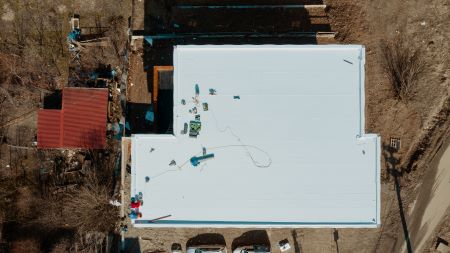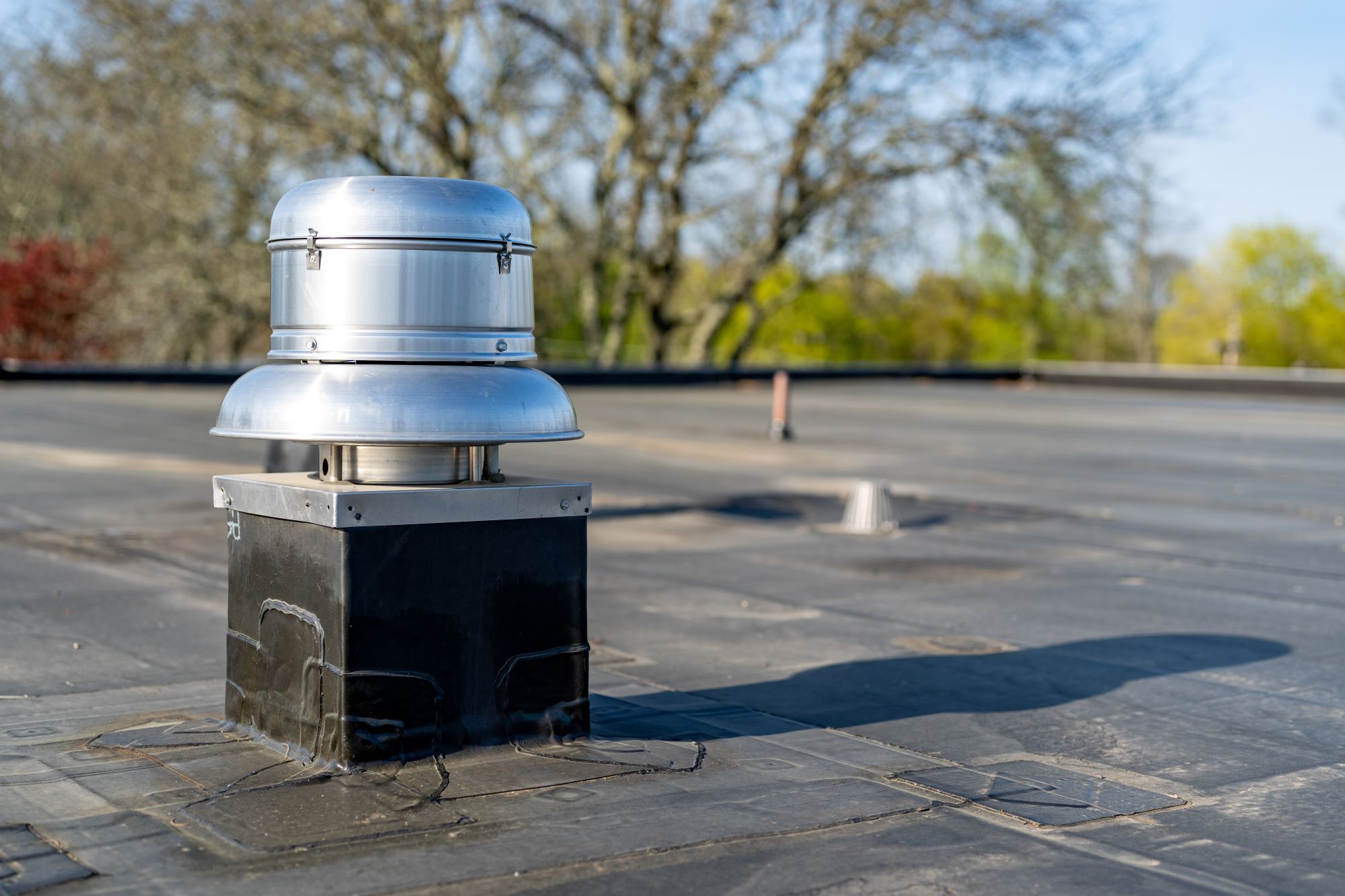When it comes to roof maintenance and renovation, businesses often find themselves at a crossroads. While the need to replace or repair roofing materials is essential for the long-term structural integrity of the building, the installation process can pose challenges to ongoing business operations. Roofing companies are well aware of these concerns and recognize the importance of minimizing disruptions during installation.
This comprehensive guide aims to address the common concerns regarding roofing installation and its potential impact on business operations. We will explore the measures that roofing companies can take to ensure a smooth and disruption-minimized installation process. Throughout the discussion, we will emphasize the significance of using high-quality roofing materials, particularly roofing shingles, to ensure a durable and long-lasting roof.
The Impact of Roofing Installation on Business Operations
Roofing installation is a significant undertaking that can affect various aspects of your business operations. It’s essential to understand the potential disruptions to adequately prepare for them. Here are some of the key areas where business operations may be impacted:
Noise Disruption: Roofing installation often involves loud machinery, hammering, and other noisy activities. This can disrupt employees, customers, and neighboring businesses, leading to decreased productivity and customer satisfaction.
Accessibility Issues: Depending on the scope of the roofing project, certain areas of your business may become temporarily inaccessible. This can disrupt workflow and inconvenience employees and customers.
Safety Concerns: Roofing projects can pose safety risks for both workers and occupants of the building. Ensuring a safe work environment is crucial to prevent accidents or injuries.
Dust and Debris: Roofing work generates dust and debris, which can affect indoor air quality and cleanliness. This can be a concern for businesses that handle sensitive equipment or products.
Timeline Delays: Unforeseen issues or poor planning can lead to project delays, extending the disruption period and potentially affecting business operations for a more extended period.
Measures to Minimize Disruptions
To minimize disruptions during roofing installation, it’s essential to work closely with your chosen roofing company and plan the project carefully. Here are several measures that can help mitigate the impact on your business operations:
Schedule Strategically: Coordinate with your roofing company to schedule the installation during times of minimal business activity. For example, weekends, holidays, or slow seasons can be ideal for roofing work.
Inform Employees and Customers: Communicate the roofing project details to your employees and customers well in advance. Let them know the expected timeline, access restrictions, and any safety precautions in place.
Temporary Relocation: If possible, relocate employees to different areas of your building or allow them to work remotely during the installation. Consider setting up temporary workstations away from the construction zone.
Noise Mitigation: Request that your roofing company use noise mitigation measures, such as acoustic barriers or quieter equipment, to reduce the impact of noise disruption on your business.
Safety Measures: Ensure that the roofing company follows strict safety protocols to minimize the risk of accidents. This includes using safety harnesses, providing proper training, and securing the construction area.
Dust and Debris Control: Discuss dust and debris control measures with your roofing company. They should use tarps, barriers, and regular cleanup to keep indoor spaces as clean as possible during the project.
Quality Roofing Materials: Emphasize the importance of using high-quality roofing materials, especially roofing shingles, to ensure a durable and long-lasting roof. Quality materials are less likely to require frequent repairs or replacements, reducing future disruptions.
The Significance of Quality Roofing Materials
When it comes to roofing installation, the choice of roofing materials plays a crucial role in the project’s success and long-term impact on your business. Roofing shingles, in particular, are a critical component of your roofing system. Here are some reasons why quality roofing materials matter:
Durability: High-quality roofing materials are more durable and can withstand harsh weather conditions, reducing the need for frequent repairs and replacements.
Longevity: Quality roofing materials have a longer lifespan, providing better protection for your business over the years.
Energy Efficiency: Certain roofing materials, such as energy-efficient shingles or reflective coatings, can help improve energy efficiency, potentially reducing utility costs.
Aesthetic Appeal: The appearance of your roof can significantly impact the overall look of your business. Quality roofing materials offer a wide range of aesthetic options to enhance curb appeal.
Maintenance Requirements: Quality materials often require less maintenance, saving you time and money in the long run.
Warranty Coverage: Reputable roofing materials typically come with warranties that provide added peace of mind, ensuring that any issues are addressed promptly.
Reduced Disruptions: Quality roofing materials are less likely to experience premature failures, reducing the disruptions caused by unexpected repairs or replacements.
When discussing your roofing project with roofing companies, make sure to inquire about the types of materials they recommend and the options available. Consider investing in quality roofing shingles that align with your business’s aesthetic preferences and long-term goals.
Choosing the Right Roofing Company
Selecting the right roofing company for your project is a critical step in minimizing disruptions during installation. Here are some key factors to consider when choosing a roofing company:

Experience and Reputation: Look for roofing companies with a strong track record of successful installations and positive customer reviews. Experience matters when it comes to handling complex roofing projects.
Licensing and Insurance: Ensure that the roofing company is licensed and adequately insured. This protects you from potential liabilities in case of accidents or damages during the project.
References: Request references from previous clients and contact them to inquire about their experiences with the roofing company. This can provide valuable insights into the company’s reliability and professionalism.
Detailed Written Estimate: Obtain a detailed written estimate that includes all project costs, timelines, materials to be used, and any potential additional charges. This helps prevent surprises during the project.
Communication: Choose a roofing company that communicates effectively and is responsive to your questions and concerns. Good communication is essential for a smooth project.
Safety Protocols: Inquire about the roofing company’s safety protocols and measures to protect workers and occupants during the installation.
Quality Materials: Ensure that the roofing company uses high-quality roofing materials, especially roofing shingles, to guarantee a long-lasting roof.
Warranty: Ask about the warranty offered on the roofing materials and the workmanship. A solid warranty indicates the company’s confidence in its work.
Roofing installation is a significant undertaking for businesses, and it can potentially disrupt your operations if not properly managed. However, by working closely with a reputable roofing company, scheduling strategically, and emphasizing the use of high-quality roofing materials such as roofing shingles, you can minimize disruptions and ensure a durable, long-lasting roof for your business.
Remember that a well-executed roofing project not only protects your business from the elements but also enhances its curb appeal and energy efficiency. It’s an investment in the future of your business, and with the right planning and measures in place, you can navigate the installation process with minimal disruptions.

